
Authors: Zane Ferch, Steve Coughlan, Charlotte O’Kelly and Sinead McGlynn, October 2023
Year: 2023
This research provides enforcement authorities with viable options to use cost effective technological tools to quickly detect and react to industrial and waste crime.
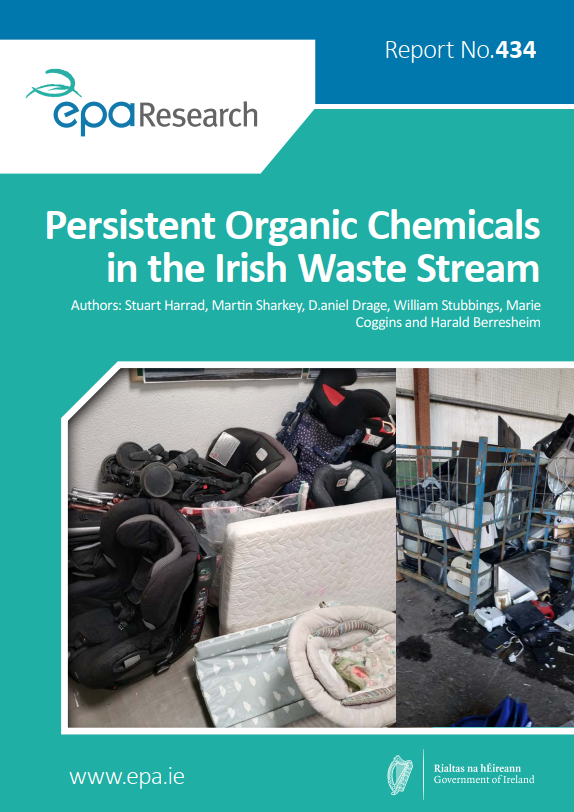
Authors: Stuart Harrad, Martin Sharkey, D.aniel Drage, William Stubbings, Marie Coggins and Harald Berresheim, June 2023
Year: 2023
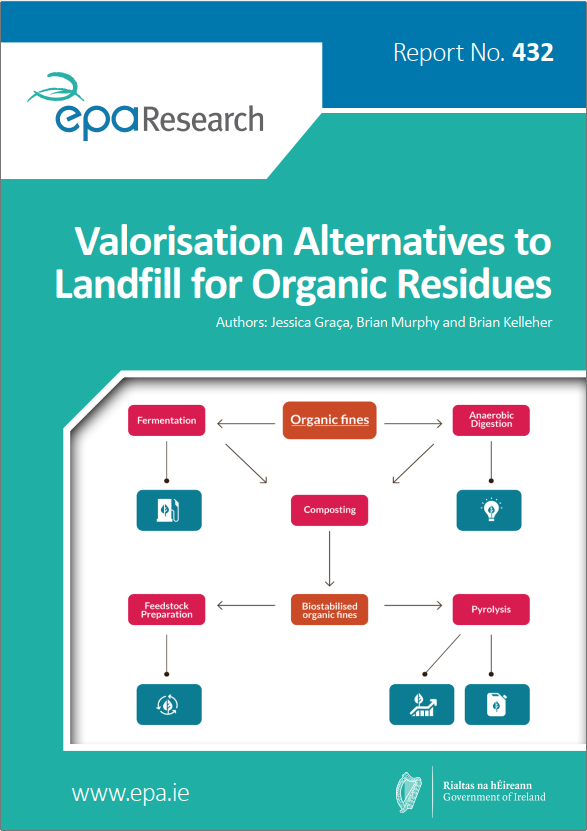
Authors: Jessica Graça, Brian Murphy and Brian Kelleher, May 2023
Year: 2023
The EPA’s latest data (November 2022) show that municipal waste generation increased by over 440,000 tonnes in the last 5 years, and now amounts to 3.2 million tonnes. The VALOR study looked at how the resource value of the mechanically separated organic fraction of municipal solid waste (MS-OFMSW) can be maximised. The study also characterised the organic fractions of municipal solid waste (MSW).
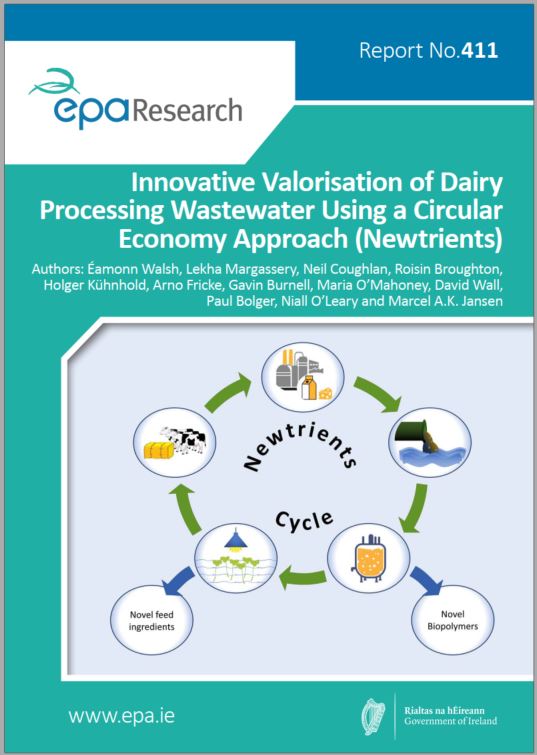
Authors: Éamonn Walsh, Lekha Margassery, Neil Coughlan, Roisin Broughton, Holger Kühnhold, Arno Fricke, Gavin Burnell, Maria O’Mahoney, David Wall, Paul Bolger, Niall O’Leary and Marcel A.K. Jansen, June 2022
Year: 2022
There are pressing economic and environmental concerns regarding the imbalance between resource consumption and regeneration. This research successfully demonstrated a paradigm shift in how wastewater is treated by developing a pioneering cascading system for valorisation of dairy wastewater, based on circular economy principles. It successfully developed an integrated system coupling microbial-based technologies of anaerobic digestion and aerobic dynamic feeding with duckweed cultivation.
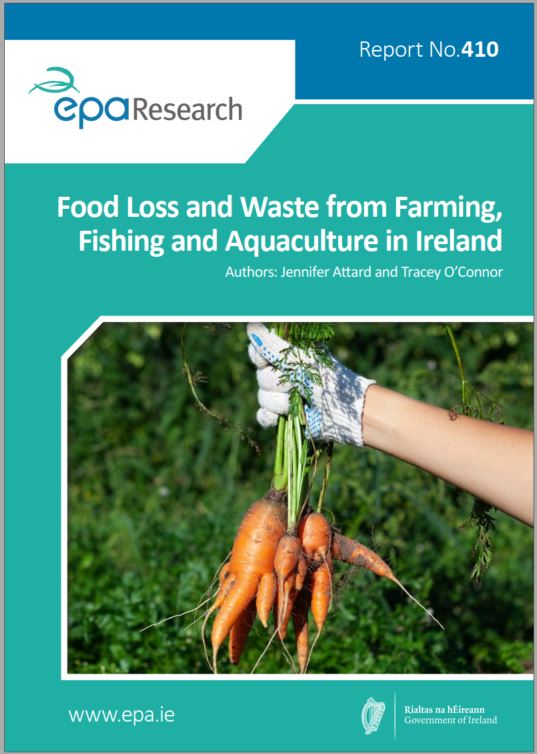
Authors: Jennifer Attard and Tracey O’Connor, June 2022
Year: 2022
Food waste in Ireland has been estimated at 1.1 million tonnes per year, but this excluded farming, fishing and aquaculture (i.e. primary production), as there were no data on these sectors. This research has quantified and understood food waste in primary production and is a starting point in identifying areas that need addressing. The project has compiled various options for solutions available to tackle the specific food waste issues occurring in Ireland.
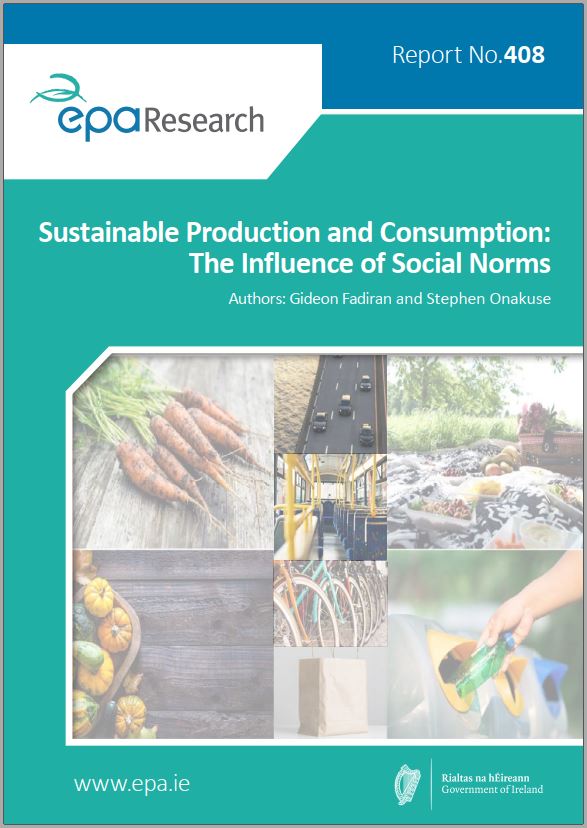
Authors: Gideon Fadiran and Stephen Onakuse, May 2022
Year: 2022
Consumer behaviour represents acts or decisions that influence the direction of production and consumption activities, which are, in turn, driven by household and, ultimately, economic activities. This research investigated the linkages between habits and norms that drive behavioural attitudes and preferences, and how consumers’ socio-economic background, community, beliefs, etc. are identified as the driving factors of consumer behaviour and waste patterns.
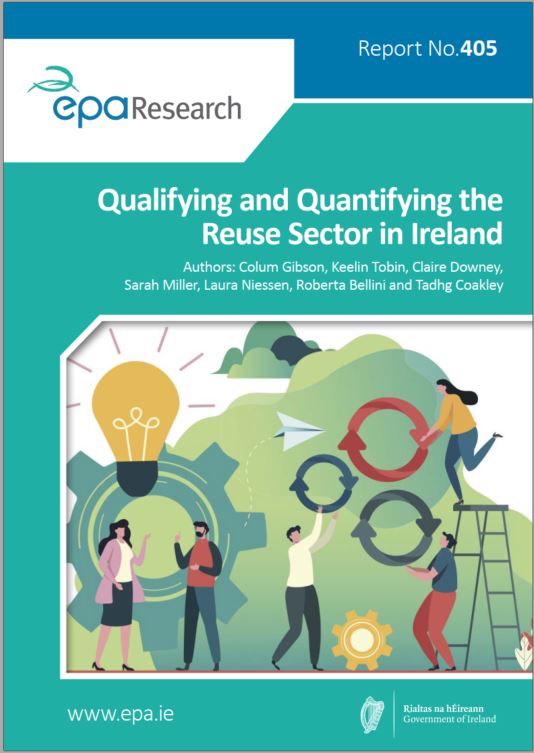
Authors: Colum Gibson, Keelin Tobin, Claire Downey, Sarah Miller, Laura Niessen, Roberta Bellini and Tadhg Coakley, March 2022
Year: 2022
Recent EU legislation aims to strengthen reuse in all Member States and asks Member States to measure reuse, with the option of setting national targets in the future. By gathering information on the scale and size of the reuse sector in Ireland, we can benchmark and compare our reuse sector against others. This study assessed the capability of the Irish reuse sector to supply the data necessary for quantifying the extent of reuse in Ireland and informing Irish policymakers on the steps required to support the sector to report in the future.
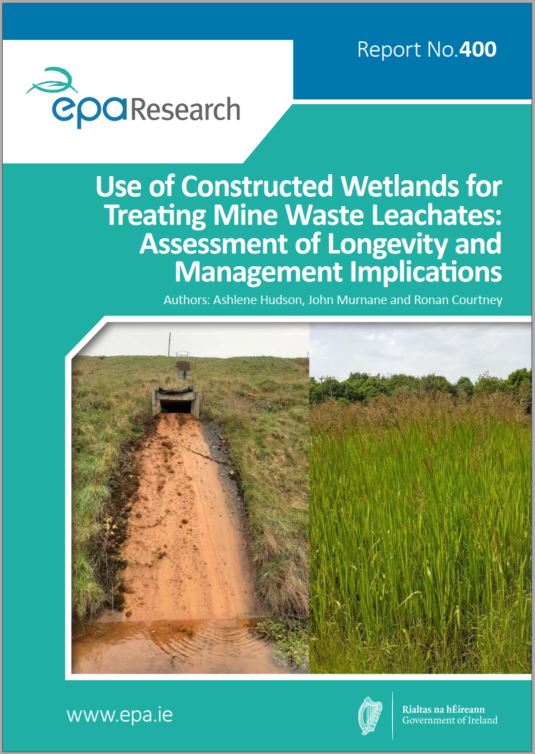
Authors: Ashlene Hudson, John Murnane and Ronan Courtney, December 2021
Year: 2021
Mine waste storage facilities can generate significant quantities of wastewaters and leachates with extreme pH and elevated metal contents. Modern mine waste (tailings) facilities operating under licence from the EPA have constructed wetlands as a component of their Integrated Pollution Control (IPC) licences. This study provides evidence of the effectiveness of constructed wetlands for treating mine waters from different settings over time frames of several years.
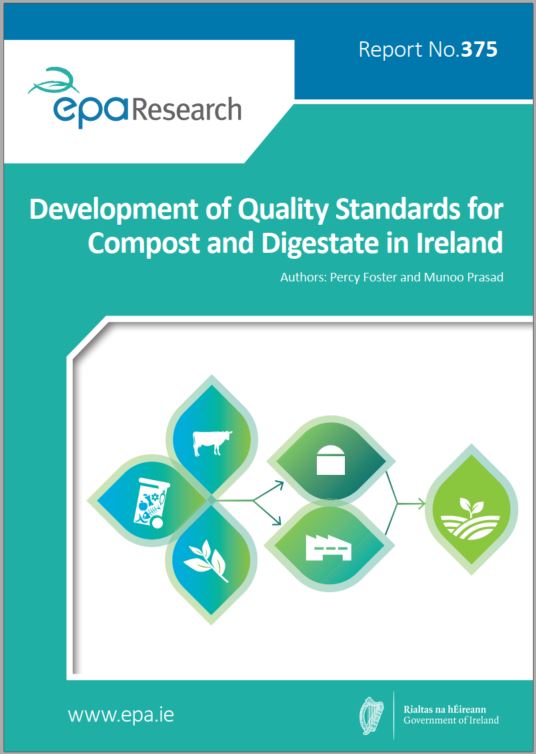
Authors: Percy Foster and Munoo Prasad, May 2021
Year: 2021
In Ireland, there are no national end-of-waste criteria for compost and digestate derived from source-separated materials. This study developed a quality standard for digestate and an updated standard for compost, it also recommends a strategy on how Ireland should implement national end-of-waste criteria for compost and digestate. It also examined best practice in other countries and options for having end-of-waste criteria.
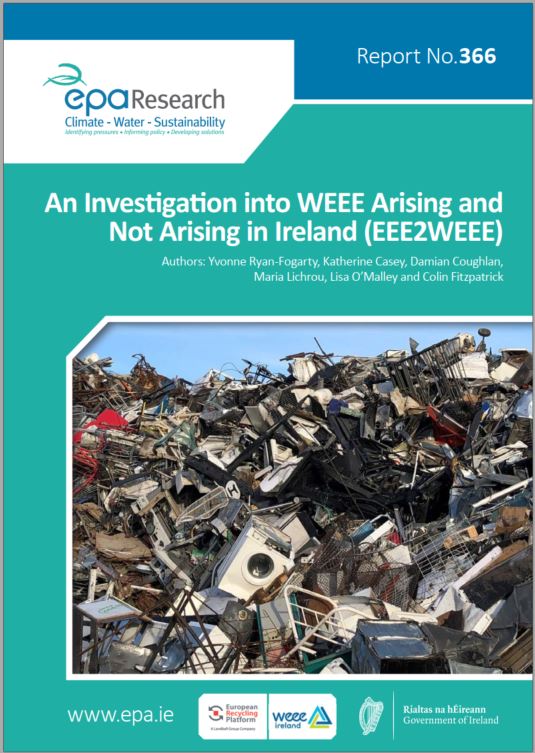
Authors: Yvonne Ryan-Fogarty, Katherine Casey, Damian Coughlan, Maria Lichrou, Lisa O’Malley and Colin Fitzpatrick, February 2021
Year: 2021
Waste electrical and electronic equipment (WEEE) is the fastest growing waste stream in Europe. This research provides insight into consumer and business behaviours towards WEEE, particularly regarding how key decisions are made around WEEE disposal. This research determined a hybrid approach to WEEE target setting should be explored, using data available to Ireland and using aspects of the WEEE Calculation Tool.
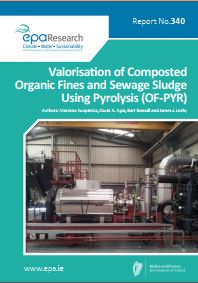
Authors: Marzena Kwapinska, David A. Agar, Bart Bonsall and James J. Leahy, September 2020
Year: 2020
In Ireland, organic “fines” residue, derived from the separation of municipal solid waste and sewage sludge from municipal wastewater treatment plants, are currently processed for disposal as wastes. The Valorisation of Composted Organic Fines and Sewage Sludge Using Pyrolysis project (OF-PYR) investigated the potential of slow pyrolysis as a technology for their treatment as an alternative to other disposal options.
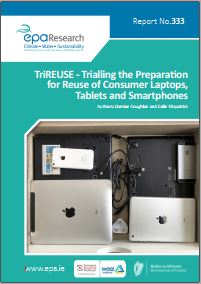
Authors: Damian Coughlan and Colin Fitzpatrick, August 2020
Year: 2020
Information and communication technology (ICT) devices contain critical raw materials. The TriREUSE project aimed to provide an insight into possible reuse rates for WEEE collections that target consumer ICT products with reuse potential. The project involved a series of 10 dedicated collection events that encouraged people to dispose of old or unwanted data-bearing devices, with the incentive of a free data destruction service.
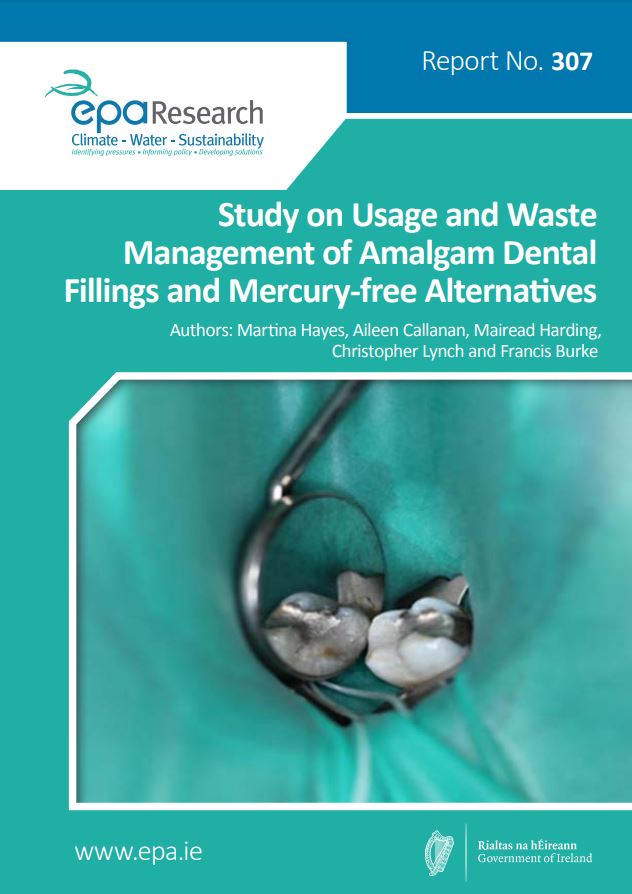
Authors: Martina Hayes, Aileen Callanan, Mairead Harding, Christopher Lynch and Francis Burke, February 2020
Year: 2020
The filling of teeth is one of the most routine and common tasks undertaken by dentists. Because of the availability of community fluoridation and improved dental care, Irish adults have fewer missing teeth; however, they have more teeth with fillings.
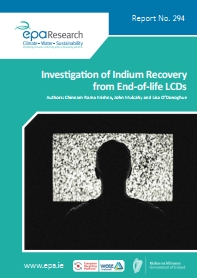
Authors: Chinnam Rama Krishna, John Mulcahy and Lisa O’Donoghue, September 2019
Year: 2019
The LCDVal project aimed to illustrate the potential indium value contained in liquid crystal displays (LCDs) accessible via recovery techniques, therefore turning liquid crystal panel waste fractions into a resource for critical raw materials.
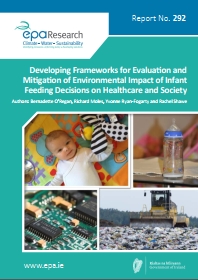
Authors: Bernadette O’Regan, Richard Moles, Yvonne Ryan-Fogarty and Rachel Shawe, September 2019
Year: 2019
Substantial environmental costs result from infant feeding decisions, not only regarding milks, foods and equipment purchased, but also regarding disposal of plastics, packaging and food waste. Existing infant feeding policies and waste management guidance do not address the disposal and waste aspects.
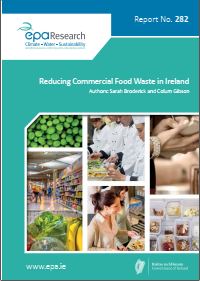
Sarah Broderick and Colum Gibson , July 2019
Year: 2019
Food waste is a global problem that has environmental, social and economic consequences. According to the hierarchy of waste management, prevention is the most favourable action to take when trying to manage food waste. The commercial sector, which refers to food wholesale, retail and service, accounts for 17% of food waste in European countries.
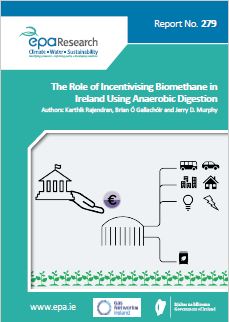
Authors: Karthik Rajendran, Brian Ó Gallachóir and Jerry D. Murphy, June 2019
Year: 2019
Ireland’s renewable energy targets for 2020 include 16% renewable energy; this can be broken down to 40% renewable electricity, 12% renewable heat and 10% renewable transport. Owing to the commercialisation of wind energy, the progression of carbon-free electricity generation is under way; however, this is not the case for heat and transport.
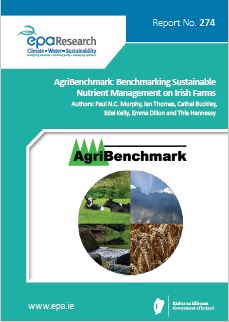
Authors: Paul N.C. Murphy, Ian Thomas, Cathal Buckley, Edel Kelly, Emma Dillon and Thia Hennessy, April 2019
Year: 2019
AgriBenchmark explored the possibilities for benchmarking of nutrient management performance on Irish farms. Teagasc National Farm Survey (NFS) data (2008–2015; 1446 farms) was used to characterise and explore the potential for improvement of farm nutrient management performance and resultant aspects of environmental and economic sustainability through the derivation of three key performance indicators.
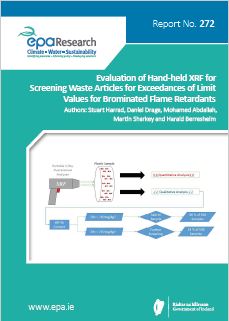
Authors: Stuart Harrad, Daniel Drage, Mohamed Abdallah, Martin Sharkey and Harald Berresheim , March 2019
Year: 2019
Recent research has demonstrated the presence of restricted persistent organic pollutant (POP) brominated flame retardants (BFRs) in items such as children’s toys and food contact articles. As the presence of these contaminants in such items serves no useful purpose, they are thought to originate from the use of recycled plastics that were originally treated with BFRs.
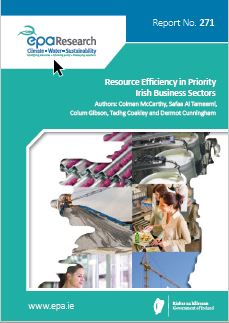
Authors: Colman McCarthy, Safaa Al Tameemi, Colum Gibson, Tadhg Coakley and Dermot Cunningham , March 2019
Year: 2019
The purpose of this desk study was to identify and examine the most important manufacturing and service sectors from environmental and economic perspectives and from the perspective of potential for improvement in resource efficiency.